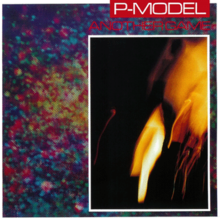Another Game
| Another Game | ||||
|---|---|---|---|---|
 |
||||
| Studio album by P-Model | ||||
| Released | February 25, 1984 | |||
| Recorded | 1983 | |||
| Studio | Sound Sky Studio, Nakano, Nakano, Tokyo | |||
| Genre | ||||
| Length | 44:20 | |||
| Label | Tokuma, Japan | |||
| Producer | P-Model | |||
| P-Model chronology | ||||
|
||||
Another Game is the fifth studio album by P-Model.
In March 1983, Yasumi Tanaka, P-Model's original keyboardist, left the group and the music industry entirely due to a severe case of writer's block. His departure left the band in a state of crisis, as leader Susumu Hirasawa was for the first time the only major creative force since the group's days as Mandrake.
With Hirasawa assuming full creative control of the band, Another Game's songs reflected the signature mood that would be prevalent throughout his career. The album carries over the sensory experimentation of Perspective and their 1983 self-released album Fu Kyoka Kyoku Shū. Hirasawa uses atypical song structures, as well as those to affect the listener through biofeedback and alpha waves. Guitar and atmospheric synths are emphasized as opposed to the loud bass and drums of Perspective. The album also pays homage to Pink Floyd, whom Hirasawa drew deep inspiration from for his music.
The album was originally scheduled to be released on 25 October 1983. However, the band's label Japan Record, postponed the release three times, with the album coming out only four months after the original planned release date. The delays happened due to a claim by the Recording Industry Association of Japan's Record Creation Standards and Ethics Committee (レコード制作基準倫理委員会(レコ倫)) that the lyrics of the song "Atom-Siberia" encourage discrimination. The band was forced to re-record song without the incriminatory verse, and as a result annulled its contract with the label. Afterwards they started the "Another Act" project, where they would release records with compositions made individually by each member. The first of which was Ikari (Japanese for "anger"), meant to represent the group's anger at the record company.
All tracks written by Susumu Hirasawa, except "Bike" by Syd Barrett with adapted lyrics by Hirasawa.
The titles of the songs are officially rendered out in all caps, except for the sub-titles of the first and last songs. "Fu-Ru-He-He-He" has had its title rendered in hiragana and translated as "FuLu He He He" on various sources.
...
Wikipedia
